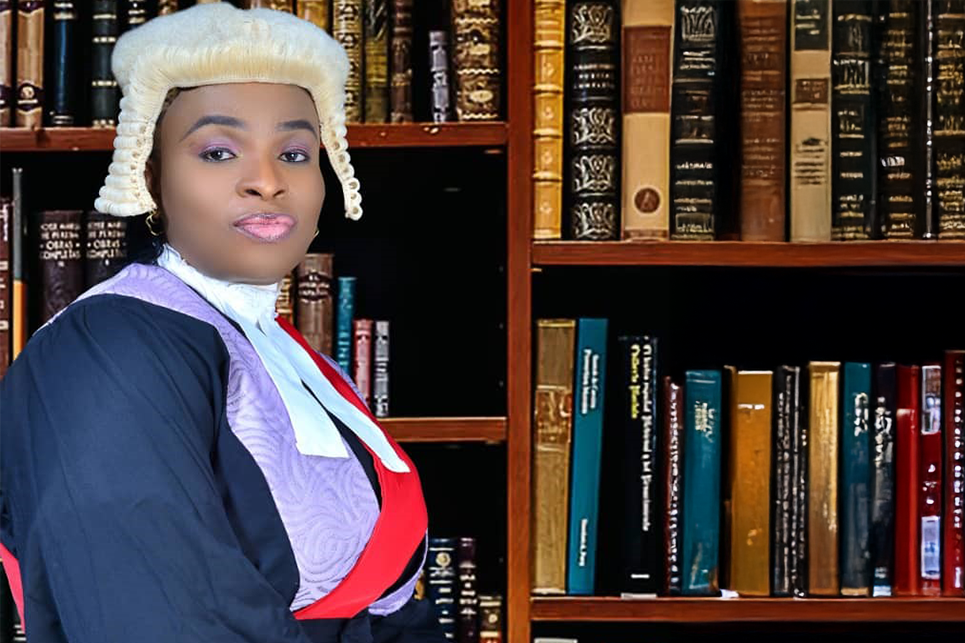Whither the Men?- Gender Representation in the Jamaican Judiciary
Marva McDonald-Bishop is the Acting President of the Court of Appeal of Jamaica. In her substantive post, she serves as Judge of the Court of Appeal of Jamaica. She is a Fellow of the Commonwealth Judicial Education Institute and also one of the focal points for the implementation of the Global Judicial Integrity Network’s Judicial Ethics Training Tools in Jamaica.
______________________________
I am grateful for this opportunity to extend warmest Jamaican greetings and heartiest congratulations to all my colleagues worldwide as we join in celebrating this inaugural International Day for Women Judges.
As I join in the observance of this special time set aside for the recognition of women judges, I am compelled to reflect on the journey of women judges in Jamaica, especially over the last 60 years of the country's independence from colonial rule. I have chosen to do so too against the background of the utterances of a senior male attorney-at-law, who, in or around the year 2000 - at the turn of the 21st century - remarked that women do not belong on the bench but rather at home in the kitchen. That comment evoked no response from me then because it was palpably clear that the speaker was stuck in the past with the backward perspective that rendered him utterly oblivious to the dawning of a new day for the judiciary of Jamaica. By then, more and more young women had started populating the bench in unprecedented numbers. I was one of them.
For the better part of our nation's history, women were subjugated and severely curtailed in their pursuits for self-determination and upward mobility. This led to an entrenched gender inequality favouring men and corresponding unfair treatment of women, particularly in the workplace. However, despite the odds, women in Jamaica broke through the various barriers in positioning themselves in places of prominence in post-colonial Jamaica. In 1959, the first woman, Ena Collymore-Woodstock, was appointed to the judiciary as a Resident Magistrate. In or around 1974, the first woman, Ena Allen, was appointed to the Supreme Court (High Court), and over a decade later, in 1988, the first woman, Marjory (Madge) Morgan, was appointed a judge of the Court of Appeal. Only one woman, Zaila McCalla, has ever held the top position of Chief Justice (2007-2018), and no woman has ever been appointed President of the Court of Appeal.
In 2022, the latest statistical data of gender representation in the judiciary of Jamaica [1] reveals that there are 95 female and 30 male judges in the judiciary - a staggering imbalance favouring females - although male judges now occupy the top positions at each level. That, notwithstanding, I am confident that many persons would agree that the emergence of a female-dominant judiciary in Jamaica is an outstanding feature in our nation's history that should take centre stage as we observe International Day of Women Judges.
However, even as we celebrate the extraordinary accomplishments of our women judges, I believe we, in Jamaica, should also seize the moment for reasoned reflection regarding the plight of our men, which is reflected in the statistical data presented earlier. A painful truth that confronts us in Jamaica is that, for whatever reason, the streams that supply men for the Jamaican judiciary - the feeder universities and law school – are, seemingly, fast running dry. The reality is that women far outnumber men in these critical tertiary institutions. If we were to continue on this same path, an all-female Jamaican judiciary is a very live possibility in the not too distant future. But is the administration of justice ready for such a phenomenon?
The gender imbalance now favouring women judges in Jamaica is the same as that favouring men decades ago. Back then, that imbalance was characterised as gender inequality, which led to strenuous advocacy on behalf of women for equality. Even as we celebrate our female judges on the international stage for the first time, there are some pertinent questions that I would leave for consideration after the celebration is over. They are: (i) what impact would this reversed imbalance in the gender composition of the judiciary have on the administration of justice in Jamaica? (ii) is the justice system better or worse off now, with gender inequality favouring women? (iii) should there be increased advocacy or a concerted effort to attract men to the judiciary? And, above all, where are the men?
[1] See statistical data of gender representation in the judiciary of Jamaica: (a) Court of Appeal: 9 women to 4 men; (b) Supreme Court: 28 women to 12 men; and (c) Parish Courts: 58 women to 14 men.


